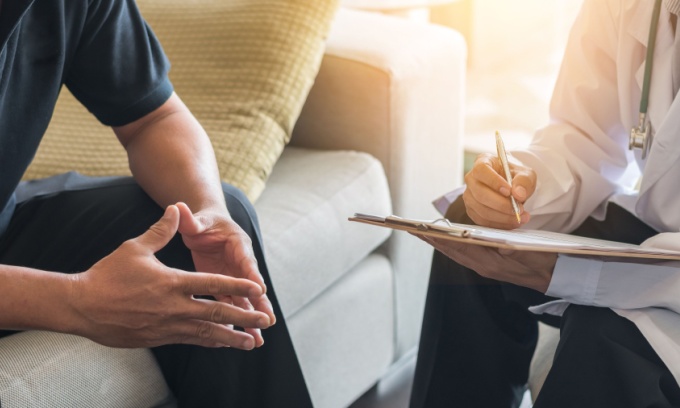KEY POINTS
- Following a car accident, you might experience both physical and psychological symptoms related to stress and emotional shock.
- According to an expert, the emotional impact of a car accident might last anywhere from a few hours to a few days, but usually within a month.
- If you, or someone you know, needs support, you can call Lifeline on 13 11 14 for free, confidential advice.. In an emergency, call Triple Zero (000).
Is it normal to be traumatised after a car accident?
Professor Nigar Khawaja of the Queensland University of Technology’s Faculty of Health, School of Psychology and Counselling told Canstar that it is common to experience some physical and emotional symptoms after a car accident. “It’s very rare that a person is not at all affected,” she said.
Professor Khawaja said there are two main considerations that can shape how we respond to a car accident. The first of these is environment-related factors, meaning the intensity, complexity and severity of the accident, while the second is person-related factors, or our own coping skills and how we deal with trauma.
These person-related factors tend to determine our response to an accident. “If the accident is of a low intensity, but the person has a genetic predisposition towards being worried and fearful, if they have poor coping skills, or if they have past experiences with terrible accidents, then even a small accident could be a big problem,” Professor Khawaja said.
What are the symptoms of emotional shock after an accident?
Following a car accident, you might expect to experience both physical and psychological symptoms related to stress and emotional shock. Some of these, such as a heightened sense of arousal, can happen soon after, while some, such as a low mood and unwanted thoughts, can persist for days or even weeks afterwards.
Physical symptoms
Professor Khawaja said there can be a physiological response that goes along with the emotional symptoms of shock following a car accident. She said that immediately after an accident, we can enter a heightened level of arousal, as our nervous system senses danger.
“Our heart gets faster, we breathe at a faster rate,” she said. “We enter a heightened level of arousal because of imminent danger, to help us deal with it. Being in a car accident, if it’s a bad experience, can lead to physiological arousal… It can cause dryness of mouth, or a racing heart. ”
She said that people might even notice that they are literally “on edge”, sitting on the edge of their chairs as their bodies deal with stress.
Psychological symptoms
Professor Khawaja said that the emotional symptoms of shock following a car accident can take the form of unwanted thoughts and even dreams about the accident, as well as feelings of worry and low mood, irritability, and even avoidance behaviours.
“Sometimes when people go to sleep, they could dream about accidents,” she said. “They could have intrusive thoughts in which their mind wanders back to the accident and they think about what happened or didn’t happen. Even sometimes they might picture the accident in their heads. They could feel worried about something like that happening again in future.”
“Some people might experience irritability as well,” she added. “People can get snappy and short – it can lead to tension.”
She also said that after an accident, people can become very fearful of anything to do with driving. “After an accident, people can be very fearful – they can be afraid of driving or sitting in a car. They might not want to drive on a road similar to the road where the accident took place,” she said.
“People can avoid any situation that’s similar to where the accident occurred – it could be driving in a particular place; at a particular time of day.”
How long does shock last after a car accident?
Professor Khawaja told Canstar that for the majority of people, the emotional impact of a car accident might last anywhere from a few hours to a few days, but that it has usually subsided within a month. She said that there are a small proportion of people who still experience anxiety, low moods and stress dreams for more than a month after an accident. If these things persist, the person may be experiencing an acute stress reaction, which is a severe stress reaction to an unexpected life event.
“The literature suggests that of the people who have had motor vehicle accidents, 13% tend to have these thoughts even after a month has passed,” Professor Khawaja said. “Another marker is what happens after the next three months,” she said, adding that many people have recovered by then, but a small proportion continue to experience an emotional reaction even after three months has passed.
Professor Khawaja told Canstar that if this reaction persists for more than three months after a severe or life-threatening car accident and it is negatively affecting a person’s life that they might be diagnosed with post-traumatic stress disorder (PTSD). She said around 4% of people who are involved in severe accidents experience PTSD.
If you feel that you may be experiencing these kinds of symptoms, it may be advisable to speak to your doctor for treatment, or for a referral to a mental health specialist who can offer you support following a car accident.
What are the signs of PTSD after a car accident?
A person who has PTSD after a car accident may have significant difficulty carrying on normal day-to-day activities, according to Professor Khawaja. For example, they may not be able to work or leave the house, or their interpersonal functioning may be reduced. They might also experience pessimistic thoughts about the future.
“It may be that the person is still strongly influenced by intrusive thoughts and they can’t stop thinking about the accident, as if they’re back there,” said Professor Khawaja. “It may be that they can’t drive or even sit in a car. They may have a low mood; they might think that if they get in a car, something terrible is going to happen… [such as] a re-occurrence of that traumatic incident.”
How can you recover from a car accident emotionally?
If you need help with your mental health, or you know someone who does, you can call Lifeline on 13 11 14. Free, confidential advice is available to help you and your loved ones. You may also want to speak to your doctor for treatment or to refer you to a mental health specialist for professional support after a car accident.
There are a number of self-help strategies you can employ to help recover from the emotional impact of a car accident, according to Professor Khawaja. These can include:
- breathing and relaxation exercises, like yoga and meditation
- exercising and going for walks in nature
- seeking out mindfulness strategies or apps
- getting back in the car and gradually reintroducing yourself to driving
Professor Khawaja told Canstar that people can develop a fear of cars after an accident, and it may be the case that you are afraid to drive at a particular time of day or in a particular setting, or even to get into a car at all. She said that avoiding a situation will not necessarily help you recover.
“The more you stay away from the feared object, the bigger the fear gets, so we have to take baby steps to go back to whatever we’re afraid of,” she said. “If it’s driving, then perhaps you can go and sit in the car, then look at it, then be a passenger, and maybe then start driving down your driveway or street or around your suburb… After taking baby steps, you might be able to go back to your normal driving level.”
“If you have unwanted thoughts about an accident, it can be important to remind yourself that sometimes these things happen,” she said. “Even if you consider yourself to be a good driver, there can still be external factors that might have contributed to the accident. The road might have been wet, for example. It’s important to work on those thought processes too.”
Where can you go to get help following a car accident?
In an emergency, call Triple Zero (000). If you need to speak to someone urgently, you can contact Lifeline on 13 11 14 or the Suicide Call Back Service on 1300 659 467. Australia has several organisations dedicated to helping you get the help and treatment you might need, and information about self-help strategies for recovery after a car accident:
- Lifeline: Phone 24/7 helpline on 13 11 14 or chat online.
- Australian Psychological Society: Find a psychologist in your area or phone the Referral Service on 1800 333 497. Your local GP can give you a referral for free counselling through Medicare. There are even organisations of counsellors for particular faith backgrounds, such as the Christian Counsellors Association of Australia.
- Beyond Blue: Phone 1300 224 636 or chat online.
- SANE Australia: Phone 1800 187 263 to chat with a mental health professional on weekdays from 9am to 5pm.
- ReachOut Australia: You can chat with peers about your experiences.
- Kids Helpline: 24/7 free, confidential online and phone counselling for young people aged 5 to 25. Phone 1800 55 1800 or reach out online.
- headspace: There are headspace centres all over Australia for you to talk in person – or you can connect online.
- The Department of Health has information about Aboriginal and Torres Strait Islander health services in each Australian state and territory. Beyond Blue also has a list of helpful contacts and resources for Indigenous Australians.
- MyMentalHealth has an extensive list of resources for culturally and linguistically diverse (CALD) people, including refugees and asylum seekers, in need of mental health services. The Translating and Interpreting Service (TIS National) – phone 131 450 – can help with translation support to speak with a crisis support line, such as Lifeline.
- Open Arms provides mental health support for veterans, ADF personnel and their family members. Phone 1800 011 046.
Cover image source: Chinnapong/Shutterstock.com








